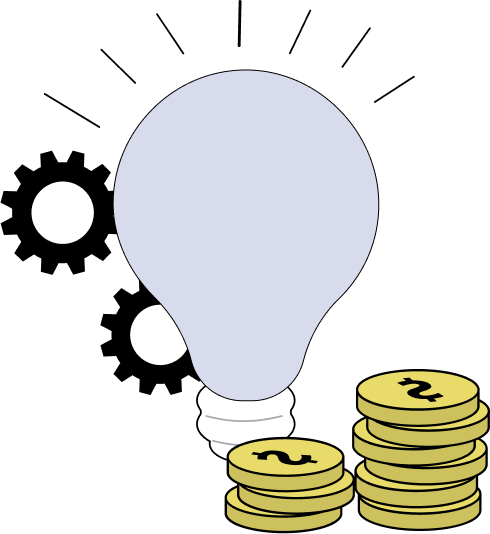The Opposite is Also True
It is a well-established fact that if you flip a coin 100 times, the coin will land heads up around 50 times.
If rain is a possibility in a weather forecast, the prediction will usually be based on a percentage chance of that rain, such as “there is a 40% chance of rain tomorrow.”
A law of physics is that for every action there is an equal and opposite reaction.
Why am I telling you these things? Because, the opposite is also true.
If a coin lands heads up 50 times out of a hundred, it will also land tails up 50 times.
If there is a 40% chance of rain, it also means that there is a 60% chance it won’t rain.
When you take action, you should expect that there is going to be a direct and proportionately related consequence for the action that you have taken.
While these are objective, mathematical and scientific truths, I am more interested in their relationship between your focus and the one that represents the opposite side of the consideration at hand. For example, you may focus on the fact that there is a 40% chance of rain and I may be more apt to concentrate on the 60% likelihood that it won’t rain. Either way, we’re both justified in our view and our focus is valid.
The relationship between your focus and mine is also important from a subjective standpoint.
When you have a belief, or you have developed an opinion on a particular subject, how much of your belief or opinion is solely focused on your point of view? Might your opinion be altered if you considered the alternate point of view? In my opinion, the answer to that question is a resounding yes!
If your aim is to be a consistently good decision-maker, your ability to gather and understand all pertinent information prior to making decisions is going to be at the center of your ability and to make a habit of doing so will help you maintain the consistency that you will need to do make good decisions on a regular basis.
Equally important to making good decisions on a consistent basis is your ability to relate to others. If your decisions are going to be impactful and understood, you will need to demonstrate that you can relate to those around you by taking note of their views and opinions even if they contrast with yours because the opposite view is just as true to them as your views are to you.
Setting out to always agree with others will set you up to fail miserably. If your goal is to be understood and to understand what others think and why, you will be much more likely to achieve that objective.
Understanding alternate points of view and unique takes on a situation will help you to make better decisions for yourself and put you in a better position to relate to and potentially be in position to have a positive influence on those around you, especially those you care about.
If you first take the time to understand someone else and their viewpoint, you will have an easier time expressing your view and where it diverges. Furthermore, you will have a strategic advantage if you are engaged in a debate and the party on the other side of the debate hasn’t taken any time to understand you and your opinions.
Think about it. If you understand your opponents view and your own and your opponent only understands their own opinion, who will be more likely to win that debate?
For the last several years, much has been said about how polarized our society has become. For what it is worth, I think one of the main reasons for this is that many people just don’t take the time to understand alternative thoughts or ideas. Some don’t even take the time to thoroughly think through their own thoughts or ideas, but those that do are often so focused on being right that they ignore the fact that the opposite is also true.
There are definitely things that can be clearly categorized as right or wrong with no gray area, although those things don’t tend to be at issue. Many more topics, and many of them that are debated on a regular basis, are not nearly as clear cut. For those topics, there are often merits to be found in each opposing view. Those merits are often missed or ignored, however, and the result is a false prioritization for either side to win the argument, not for there to be a workable solution.
When you don’t at least consider other views, you lose the opportunity to establish common ground and, when that occurs, extremism takes over. I think this is exactly what we are experiencing in our society today. To me, it feels like our future is a lot less about moving forward together and a lot more about which extreme viewpoint will win out without any room for those who think otherwise.
Whatever our collective future holds and however the national issues are debated and ultimately decided, you can put yourself in the best possible position to make good decisions by at least attempting to understand other points of view and alternative focal points.
This is another example of concentrating on what you can do and can control and the good that can come out of that type of mindset. By the way, the opposite is also true.
Scott Arney
Chief Executive Officer
Chicago Patrolmen’s Federal Credit Union






